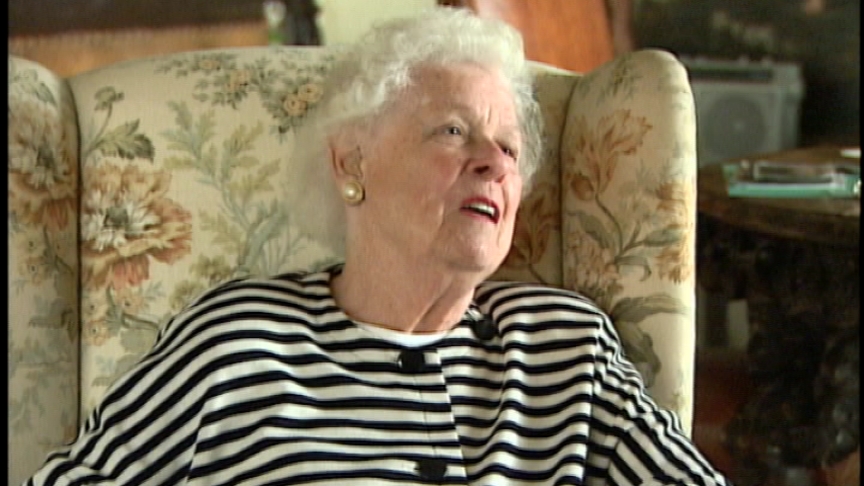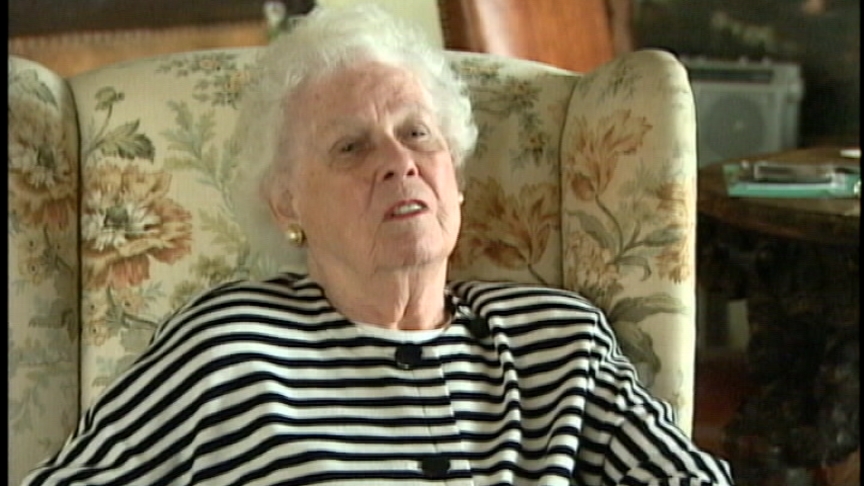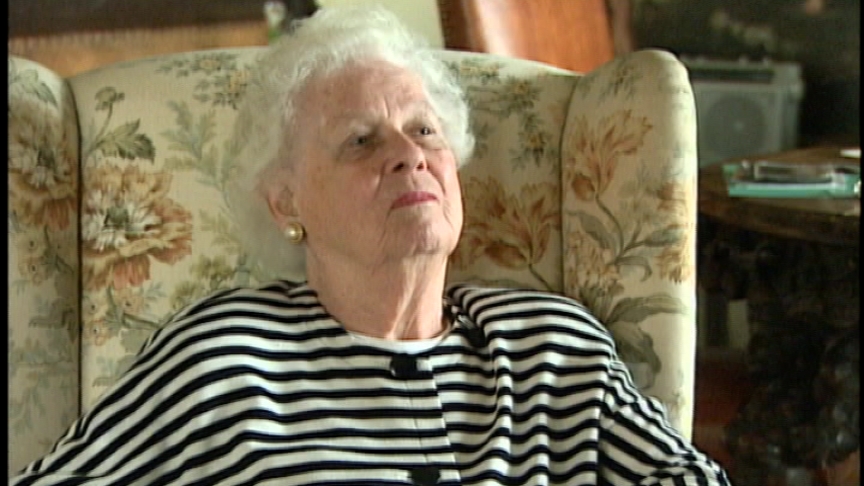'43 we were at Colchester getting ready to go to Italy
and in Colchester there was great confusion because number
one, these are two Montreal hospitals, number 1 and number 14.
One was a two thousand bed and our hospital was six hundred,
that, you could imagine how many, in six hundred bed there be
eighty-five nurses plus all of the physios and other, extra home
sister and then, extra. It just accumulated a little bit more.
Now in, other hospital, I would think, I don't really,
can tell how many nurses they had in number 14, but I know in
number 1 we had eighty-five. And we had a six hundred bed
hospital so they had 1200 beds so that would double. (Inaudible)
They must've had about a hundred to two hundred nurses, and
there was a lot of confusion. You know how rumours spread and we
kept getting the rumours that number 1 wasn't going to, the
captain of the ship that was taking us, wasn't going to have
the two hospitals together with all the nurses and doctors.
He was going to separate them, and there was great confusion.
Anyhow, we didn't know, whether we were going or not, so
number 14 set off in all her glory and feeling very smug
that they were going. But on November the 6th, they had an
aerial torpedo and their ship went down, but they had quite
an experience. 'Course they all got in, into the boats and then
they had to, the nurses had to row the boats because some of the
staff didn't know enough about a... The time...
Interviewer: You can keep going. You can keep going.
Just tell me about them, the nurses rowing in the boats.
Oh, yes, they still talk about it if you see or, you know if you
get into a gathering you, you talk about these things and, but
we were happy that we didn't go, because I'm sure I would
have gone down.
Interviewer: Were there any, any lives lost in that? No.
Interviewer: They were all managed to...
And the American ships that were in the area came to the rescue,
and the girls had to, I think one girl fell in. You know these
ropes that go up the side of the ship. One of them got half way
up and then she fell down, but somebody dived in and rescued her.
She was the only one that had any trouble. After they
were torpedoed, they put us on the hospital ship with all the
lights going on. We were terrified seeing all the lights,
because, we seen from 1940 to '43 we hadn't seen a light and the
ship was all lit up, the hospital ship was all lit up, as
a precautionary measure so that the Germans wouldn't bomb it.
And, then we landed in Algiers and the only good place in
Algiers, as far as we all were concerned, was the Officers club
and we all joined the Officers club. It's the only place
but, oh Algiers was terrible. The interesting part about Algiers
the Matron said, "Alright you girls aren't, we're going to be
here for awhile, not too long, but," she said, "why don't you
take five girls or so and I'll arrange that you relieve the
British nurses that are in tents," and so off we trotted and we
had a very enjoyable time, but they were mostly all burn cases,
very, very bad cases.
Interviewer: They were mostly air force, were they? (Yeah.)
And then when we came, let's see now, when we, oh yes, then we
went on to Naples and then worked in the British hospital in
Naples and there we had all these guardsmen with their legs
off and amputated, just sickening. But in the middle of
the floor they had German prisoners and when we went into
the wards, they said, they had little things on, "Don't forget
the middle of the ward" and a few more words or something,
you know, and of course we weren't going to forget that.
I did the dressings while I was there and that was all there was
to it. But Naples Hospital, was a beautiful hospital. It had
been, but the Germans had been there before, and they had
left a lot of their bits and pieces down below. And we used to
have to climb up a ladder to get to the wards...
They had, they must have kept their dead down below then,
by the smell of it, I thought.
Interviewer: How long did you stay in Naples then?
No, well that was just in transit. I guess we went to Avellino
after that, and this was, Avellino was, must have been '44.
Avellino was getting ready for the last round of, to get Rome,
and that's where I went out on a field surgical unit with another
girl and two doctors and six orderlies. And we were a mobile
unit that we could assemble the whole, in twenty minutes we
could be on our way. Now going out on that, we travelled at the
outskirts of Cassino and Pignataro and, and a number 5 CCS
was a 5 Pignataro. And they called, we were called to go
there and assist because they had heavy causalities from the
Gustav Line and from Cassino. So there the Germans made a direct
hit on the lighting system. Of course, all the lights went out,
the patients on a table, but they all seemed to have survived.
Most of the doctors and nurses were under the tables, but the
patients were pinned down anyhow. There was always somebody up
floating around. That was, I don't know, it was, it was a very
upsetting area because everything was in rooms and as you go
along you saw crosses with helmets on and dead cows and
all that sort of thing. It was just disruptive. It was, I don't
think of that very often, because it was so horrible and when
we first started out at, on this trip you could smell death.
You could smell it. It got into your nostrils and, and into your
mouth and in your clothes, and you came like this and then bang,
it hit you right, right between the eyes.





